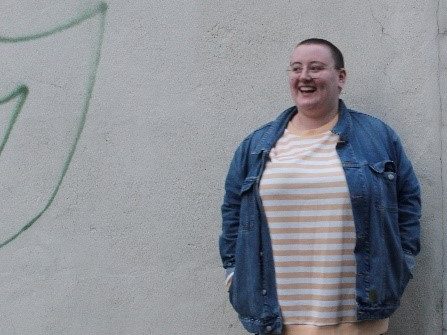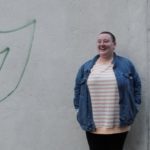Using Music to Overcome Abuse

I am a survivor of child abuse. That is not something that will ever be easy to admit to, or something that I will get over. It feels as if that fact is one I carry around everywhere I go. Sometimes it is small enough that I can pop it on a keychain or into my pocket, and sometimes it is heavier than my own body and I drag it around with me like a constant burden.
There is so much shame attached to being a survivor of abuse. I remember growing up I felt as if I was the only one and that nobody could ever understand or empathize with what I had been through. When I was 14, I first heard the song, I Am Not a Pretty Girl, By Ani Difranco. I remember I used to play it in my headphones as I walked to school, did the laundry, cleaned my bedroom. I remember writing on my arms the lyrics, “Every time I say something they find hard to hear, they chalk it up to my anger and never to their own fear.” I wore these words like tattoos under my school jumper. I don’t know what Difranco wrote the song about or if her situation was similar or different to mine. All I knew was that when I listened to it, I felt powerful, heard, and seen in a way I hadn’t felt before. The lyrics became like a mantra and a reminder that there was nothing wrong with the person that I was and the person that I wanted to be.
I looked up to Ani Difranco and the way she wasn’t afraid to say how she felt, or to get labelled as ‘angry’ or ‘radical’. When I listened to her music, I felt like I could gain back some of the power I hadn’t had as a child. I felt like she said all the things I wished I could. She performed without fear or shame.
Not long after I started to listen to her music, I started writing my own songs. I liked how sometimes her lyrics didn’t make sense, or just said things in clear blacks and whites. Finding I Am Not a Pretty Girl gave me this new purpose – I wanted to write the songs that people like me needed to hear. I’d spent years being told that my voice wasn’t important and being forced to stay silent about what I was surviving, but writing music helped me realize that there is no right or wrong way to survive what I’d endured.
In 2019 I won the BBC Radio 2 Young Folk Award with a song I wrote about the MeToo movement, and a year later I released my first album, Purgatory, which explored lockdown from the perspective of a survivor. A few months after I released the album I got a message on Instagram from a young woman who was also an abuse survivor, who told me that she listened to my music every morning on her bus ride to school and that my story and my music had helped her.
This year I’ve also worked with the Recovery College to create Finding the Musical Me, a course that uses musical principles to help people who are struggling with their mental health. The College provides loads of wonderful opportunities to use creativity to help with managing your mental health, so if anything I’ve talked about has resonated with you, then maybe take the time to look at the courses and see if anything takes your interest.
I think surviving after abuse shows such strength, power and courage. If you are also a survivor, I am so sorry you endured what you did, and I hope you know that regardless of the circumstances it wasn’t your fault.
Popular articles
Co-production in Calderdale and Kirklees Recovery and Wellbeing College
The Recovery and Wellbeing College was established in 2014. It has over…
Find out about “Discover 2020: Pandemic Stories”
2020 will be a year forever remembered for a Pandemic that changed…
We all wear masks!
A smiling face, a cheeky grin and a mischievous sense of humour!…

